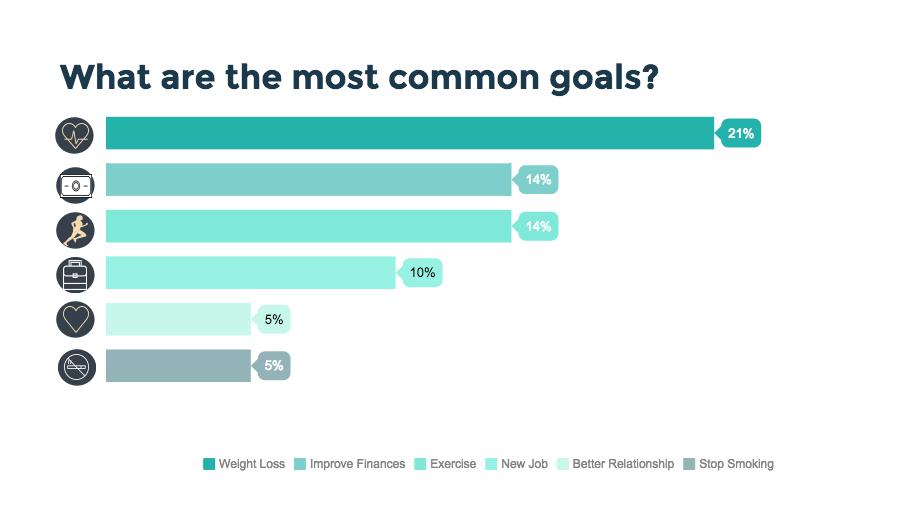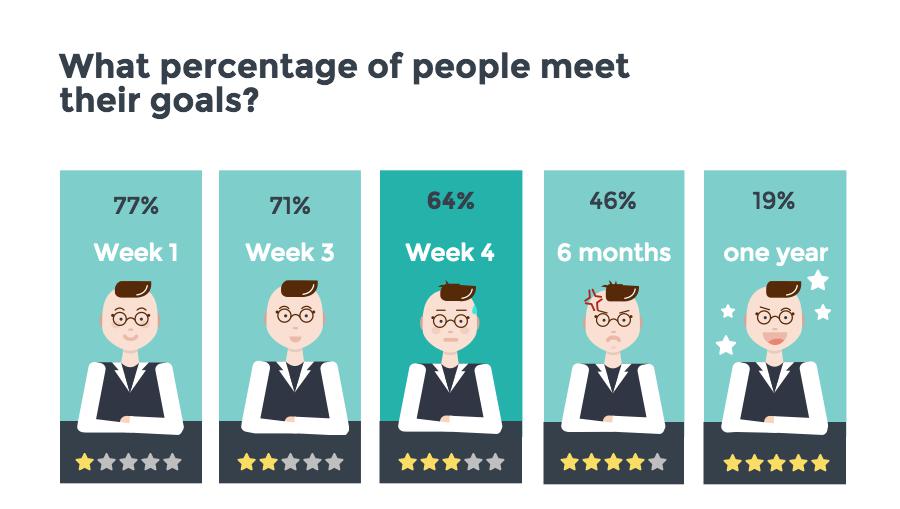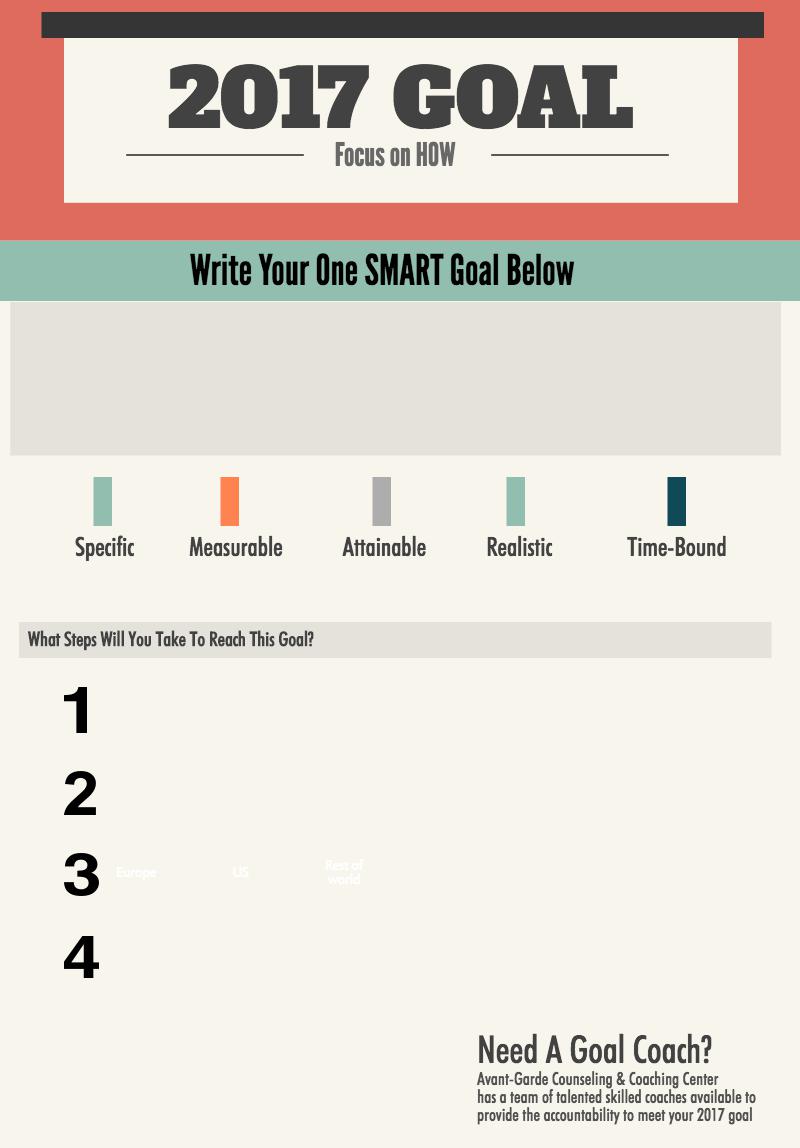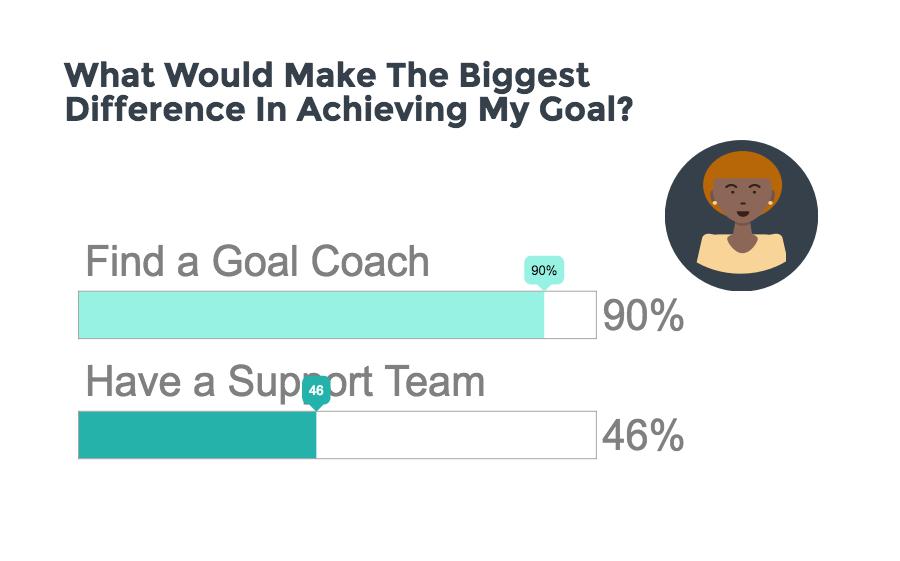Be The 8% To Reach Your New Year Goal
Science Says 92% Of Us Will Not Reach Our Goal

As the New Year begins, a lot of us are thinking about our 2017 resolutions. There is something about a fresh calendar and the start of a brand-new year that often gives us a jolt of motivational energy. It’s time to make a change to improve our quality of life. And good for us for thinking positively. Seizing the opportunity to improve ourselves. Unfortunately for most, a couple weeks after the beginning of the New Year our goals and the tools purchased to help us get there, are long forgotten.
Does This Sound Familiar?
With a new year, brings the perception of a clean slate. A fresh new start with endless possibilities. After finishing up an often, stressful holiday season, many of us begin to search for something to help us feel optimistic about the start of the new year.
“Last year I really ate horribly…I’m going to eat healthier this year”
“Last year I was so tired all the time, I’m going to get more rest this year”
“I’ve spent the last year in a job I hate, this year, I’m going to find something new”
“And the ultimate…. My xyz birthday is this year, I’ve got to xyz before then” 
What Happens To Our Best Intentions?
If we all begin the New Year with the best of intentions…what happens to this positive energy by the 2nd week of the year?
The problem may lie in the incredible amount of pressure we place on ourselves during this time of year. And the astronomical size of the goals we set.
We tend to focus too heavily on the What and not enough on the How.
When we are more concerned with the actual goal and not on the objectives (the steps you will take to get there), yucky, negative feelings roll in.
These negative feelings smother all that positive energy and motivation. Some of us become panicked that the goal will never be met. Some of us become depressed because the goal isn’t being met fast enough. Still others let guilt take over when old habits creep back into daily practice.

Begin With a Couple Key Points in Mind
Start By Being Clear & Concise
Create a hard line in the sand to define what a goal is and what an objective is. A Goal is a BIG picture item – I want to be more organized, I want to be on time to work, I want to lose 20lbs. These are goals. They are major. They are the finish line. If you think of a goal as a balloon, Objectives is the air you’re going to blow into it, one breath at a time until it’s full. I am going to buy a calendar/planner, I am going to write out a morning routine for the work-week, I am going to walk outside for 15 minutes during my lunch break – these are objectives.
Are your goals and objectives reasonable? Are they measurable? Are they big enough to be motivating but small enough to be achievable over time?
Focus On The How
Keep in mind that New Year’s resolutions tend to fall apart when we focus too heavily on the goal itself, and not enough on each one of the steps we need to take along the way. To do this, spend more time working on creating solid objectives. I want more organization? In what ways? How will the organization be different at home vs. at work? What tools will you need to help you?
Create a Road Map
It’s helpful to create a roadmap, complete with stops along the way. Your goal is the final destination. This will allow you to break down the goal into consumable bites.
Put Pencil To Paper
Notice I said pencil and not pen. Writing something down increases the chances that you will complete it. Putting words on paper is imperative during this time. Pencil can be erased and re-written an endless number of times, and while your ultimate new year’s resolution may not change over time – I’ll let that the objectives you’ll develop will. Goal work is a living process; it is ever-changing.
Consult your goal coach –goals and objectives need to be written down, no doubt about it. When it comes to making changes, you’ll want some guidance and support from your coach. Your coach will help you tease out why an objective isn’t being met, what changes can be made to help improve the chances of achievement.
Create Lifelong Habits
Truly there is no secret to achieving a goal. It will always come back to commitment, motivation, and the proper tools to create long-lasting change. During the new year, the goals many of us have for ourselves involve making lifelong changes that will continue to improve the quality of our life; forming new habits and getting rid of old ones. Allow yourself time to wrap your mind around this concept, it will help guide you in forming long-term goals.
Find a Goal Coach
This is where having a motivating partner, coach or counselor makes the difference between just another New Year’s resolution and an organized, structured, realistic set of New Year’s goals.
Choosing the right person(s) to partner with in the New Year is key. While you may want to include family members and friends on your NEW YEAR NEW ME team, you’ll want one person to be front and center. They will lead the way from start to finish.
Search for a centralizing GOAL COACH who will not only hold you accountable but help you organize your BIG goals into bite-size pieces – made for easier digestion.
Your GOAL COACH needs to be someone you trust. You feel comfortable with, but someone who is able to be equal parts listener, empathizer and kick in the butt jump starter.
Consult your goal coach – it’s human nature to want, what we want NOW! Part of the goal setting (and achieving) process involves creating goals that are sustainable long term. Lean on your goal coach to help you weed out “quick fixes” and short-term thinking.
Overall, good for you for beginning the New Year with a positive outlook on your future. All of us have incredible strengths that come along with areas of challenge where improvements can be made. The decision to allow a goal coach to support you can be the biggest difference between sampling wishing something to be different, and taking the steps necessary for change.
2017 Goal Worksheet


